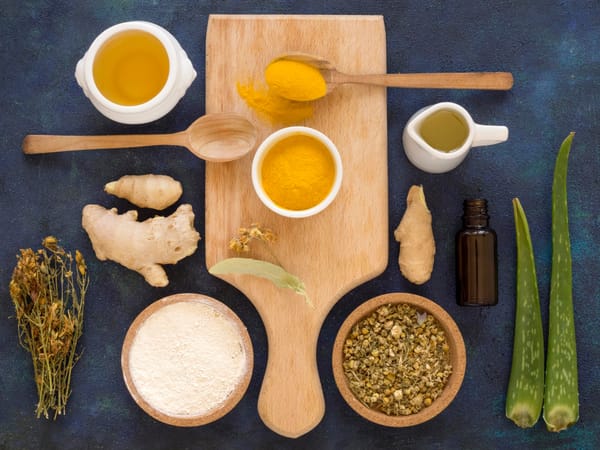Herbal Medicine
In a world where modern medicine dominates, there's a growing interest in rediscovering the benefits of herbal medicine. Herbal remedies have been used for centuries to promote health and wellness, offering natural alternatives to conventional treatments. In this blog, we'll delve into the fascinating world of herbal medicine, exploring its benefits, common uses, and considerations for incorporating it into your wellness routine.
What is Herbal Medicine?
Herbal medicine, also known as botanical medicine or phytotherapy, involves the use of plants and plant extracts for therapeutic purposes. It encompasses a wide range of remedies, including teas, tinctures, capsules, and topical preparations, all derived from natural sources.
Benefits of Herbal Medicine:
- Natural Healing: Herbal remedies harness the healing properties of plants to support the body's natural ability to heal itself.
- Minimal Side Effects: Compared to synthetic medications, herbal medicines often have fewer side effects and are generally well-tolerated when used appropriately.
- Holistic Approach: Herbal medicine emphasizes holistic health, addressing not only symptoms but also underlying imbalances in the body.
- Accessible and Affordable: Many herbal remedies are readily available and can be more affordable than prescription medications.
Common Uses of Herbal Medicine:
- Immune Support: Echinacea, elderberry, and astragalus are popular herbs used to boost the immune system and prevent colds and flu.
- Stress Relief: Adaptogenic herbs like ashwagandha, rhodiola, and holy basil help the body adapt to stress and promote relaxation.
- Digestive Health: Peppermint, ginger, and chamomile are known for their soothing effects on the digestive system, aiding in digestion and alleviating discomfort.
- Sleep Aid: Valerian root, passionflower, and lavender are used to promote relaxation and improve sleep quality.
- Pain Management: Turmeric, ginger, and devil's claw have anti-inflammatory properties and may help relieve pain associated with arthritis and muscle soreness.
Considerations for Using Herbal Medicine:
- Consultation: It's essential to consult with a qualified herbalist or healthcare provider before starting any herbal treatment, especially if you have underlying health conditions or are taking prescription medications.
- Quality and Safety: Choose reputable brands that prioritize quality and purity when purchasing herbal products.
- Dosage and Administration: Follow recommended dosage guidelines and instructions for preparation to ensure safe and effective use.
- Potential Interactions: Be aware of potential interactions between herbal remedies and prescription medications.
Conclusion
Herbal medicine offers a holistic approach to health and wellness, drawing on the therapeutic properties of plants to promote balance and vitality. While herbal remedies can be beneficial, it's important to approach them with knowledge and caution. By integrating herbal medicine into your wellness routine responsibly, you can harness the power of nature to support your overall well-being.
Would you like to explore specific herbs or remedies in more detail? Let us know your interests and questions in the comments below!




